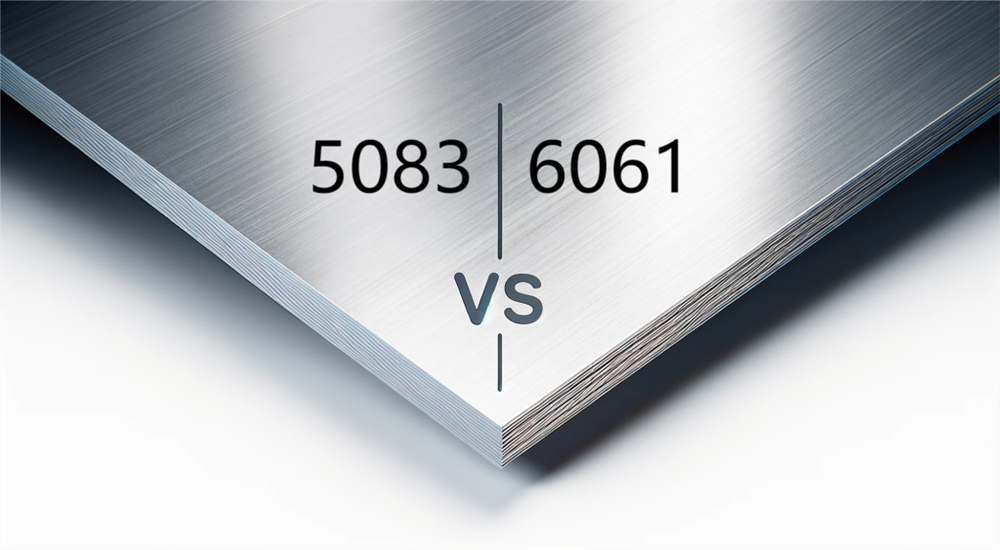Differences Between 5083 Aluminum Sheet and 6061 Aluminum Sheet
When it comes to choosing the right aluminum sheet for your project, there’s no one-size-fits-all solution. Each type of aluminum sheet offers unique properties and advantages. In this article, we’ll delve into the differences between two popular choices: 5083 aluminum sheet and 6061 aluminum sheet. By understanding their distinct characteristics, you’ll be better equipped to make an informed decision for your specific application.

5083 Aluminum Sheet
5083 aluminum sheet is a versatile alloy known for its exceptional corrosion resistance and high strength. Primarily used in marine applications, it is highly resistant to seawater and industrial chemicals. Its excellent weldability makes it suitable for various fabrication processes, including welding and forming. Additionally, 5083 aluminum sheet exhibits good workability and maintains its integrity in extreme environments.
Key Features of 5083 Aluminum Sheet
- Superior Corrosion Resistance: Ideal for marine and offshore structures where exposure to saltwater is a concern.
- High Strength: Offers excellent strength-to-weight ratio, making it suitable for structural applications.
- Weldable: Easily welded using conventional methods, retaining its mechanical properties after welding.
- Formability: Exhibits good formability, allowing for the creation of complex shapes and designs.
- Lightweight: Despite its strength, 5083 aluminum sheet is lightweight, reducing overall weight in applications where weight is a critical factor.
6061 Aluminum Sheet
6061 aluminum sheet is one of the most commonly used aluminum alloys, prized for its exceptional strength and versatility. It is heat-treatable and offers good machinability, making it suitable for a wide range of applications across various industries. From aerospace components to automotive parts, 6061 aluminum sheet is popular for its balance of strength, corrosion resistance, and affordability.
Key Features of 6061 Aluminum Sheet
- High Strength: Exhibits excellent strength properties, particularly after heat treatment.
- Machinability: Offers good machinability, allowing for precise machining and intricate designs.
- Versatility: Widely used in structural applications, aerospace components, automotive parts, and more.
- Heat-Treatable: Strengthened through heat treatment, enhancing its mechanical properties.
- Corrosion Resistance: While not as corrosion-resistant as 5083 aluminum, 6061 aluminum sheet still provides adequate protection in many environments.
Choosing the Right Aluminum Sheet
When deciding between 5083 and 6061 aluminum sheet, there are different factors, including the specific requirements of your project, environmental conditions, budget constraints, and fabrication needs. If corrosion resistance and marine applications are paramount, 5083 aluminum sheet may be the preferred choice. Conversely, if high strength and versatility are key considerations, 6061 aluminum sheet might be more suitable.
Ultimately, both 5083 and 6061 aluminum sheets offer unique advantages, and the best choice depends on the demands of your application. By carefully evaluating the properties and characteristics of each alloy, you can ensure optimal performance and longevity for your project.
Learning More Information For Your Projects
In the realm of aluminum sheet alloys, 5083 and 6061 stand out for their distinct properties and applications. Whether you prioritize corrosion resistance, strength, machinability, or versatility, there’s a suitable option to meet your needs. By understanding the differences between these two alloys, you can confidently select the right aluminum sheet for your next project, ensuring exceptional performance and durability.
